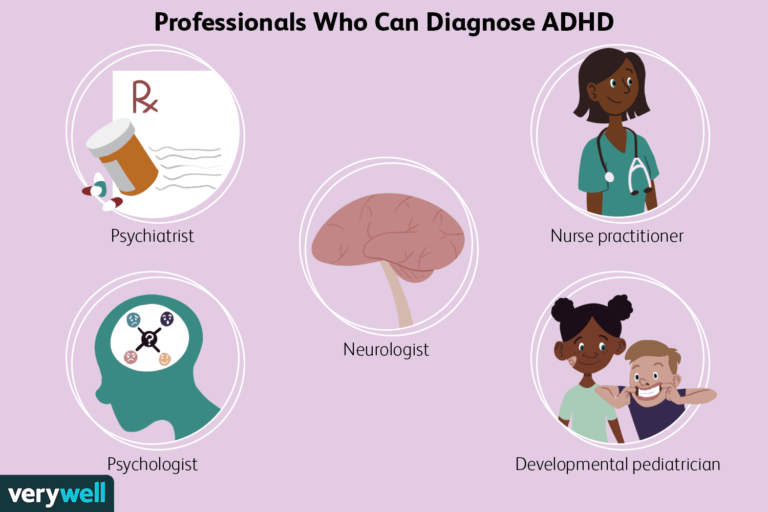The Science Behind Vitamin Injections: Are They Worth It?
Are you feeling sluggish, tired, or struggling to concentrate? It’s possible that you may be lacking essential vitamins in your diet. While oral supplements are a popular option for boosting vitamin levels, there’s another method gaining popularity: vitamin injections. But are they worth the hype? In this blog post, we’ll dive into the science behind vitamin injections and explore their effectiveness in improving overall health. From brain function to bone strength, we’ll uncover the potential benefits and weigh them against any potential risks. So get ready to inject some knowledge into your understanding of vitamins – let’s delve into the world of vitamin injections!
What are vitamin injections and what do they do?
Vitamin injections, as the name suggests, involve injecting vitamins directly into the bloodstream. Unlike oral supplements that need to be digested and absorbed by the body, vitamin injections bypass the digestive system altogether. This means that vitamins are delivered straight to where they’re needed most – your cells!
The goal of vitamin injections is to quickly increase your vitamin levels, providing a more immediate impact on your health. They can help address deficiencies in essential nutrients like B12, which play a crucial role in energy production and nerve function. Additionally, vitamin injections can also provide a boost to overall well-being and support various bodily functions.
Vitamin B12 injections
Vitamin B12 injections have gained popularity in recent years as a way to boost energy levels and improve overall well-being. This essential vitamin plays a crucial role in the body’s production of red blood cells, DNA synthesis, and neurological function.
For those who may be deficient in vitamin B12 due to factors such as poor diet or certain medical conditions, injections can provide a quick and effective way to replenish this vital nutrient. By bypassing the digestive system, which can sometimes hinder absorption of oral supplements, these injections deliver high concentrations of vitamin B12 directly into the bloodstream for maximum benefit.
However, it is important to note that while vitamin B12 injections can be beneficial for individuals with confirmed deficiencies, they are not necessary for everyone. It is always recommended to consult with a healthcare professional before considering any type of supplementation regimen.
Other types of vitamin injections
Other types of vitamin injections can provide a range of benefits for those seeking to boost their nutrient levels. One popular option is vitamin D injections, which are especially important for individuals with limited sun exposure or conditions that inhibit the body’s ability to produce this essential vitamin. Additionally, vitamin C injections are often used for immune system support and antioxidant properties. These injections may be particularly beneficial during times of increased stress or illness when the body needs an extra boost to fight off infections. Whether it’s vitamin D, C, or other essential nutrients, these injections offer a convenient and efficient way to ensure your body gets what it needs.
Another type of injection commonly used is glutathione. This powerful antioxidant plays a crucial role in detoxifying the body and protecting cells from damage caused by free radicals. Glutathione injections have gained popularity due to their potential benefits for skin health and brightening effects on complexion. Moreover, there are also specialized injectable formulations available that combine multiple vitamins into one shot, providing a comprehensive nutrient boost in a single dose. These combinations may include vitamins such as B-complex, magnesium, zinc, and more – all aimed at addressing specific deficiencies and promoting overall wellness.
Deficiency in vitamins
Deficiency in vitamins is a common issue that many people may not even be aware of. Our bodies rely on a wide range of essential vitamins to function properly, and when we don’t get enough of them, it can lead to various health problems.
One reason for vitamin deficiency is the modern diet, which often lacks the necessary nutrients. Processed foods and fast food meals tend to be low in vitamins, leaving us at risk for deficiencies. Additionally, certain medical conditions or medications can interfere with our body’s ability to absorb or utilize these vital nutrients.
It’s important to remember that different vitamins serve different functions within our bodies, so a deficiency in one vitamin may have different effects than a deficiency in another. It’s always best to consult with a healthcare professional if you suspect you may be deficient in any specific vitamin.
Prevalence of vitamin deficiency
Vitamin deficiency is more common than you might think. In fact, it affects a significant portion of the population worldwide. Many factors contribute to this widespread problem, including poor dietary choices, restricted diets (such as vegan or vegetarian), certain medical conditions that affect nutrient absorption, and even age-related decline in nutrient absorption.
In today’s fast-paced world, it can be challenging to ensure we’re getting all the vitamins our bodies need from food alone. This is why vitamin injections have gained popularity as an effective way to address deficiencies and improve overall health. But before we delve into the science behind vitamin injections, let’s explore just how prevalent vitamin deficiency really is.
Effectiveness of vitamin injections
Research on vitamin injections has shown mixed results when it comes to their effectiveness. Some studies suggest that these injections can indeed increase vitamin levels in the body, especially for individuals with certain deficiencies or conditions that hinder absorption. However, other research indicates that the benefits of vitamin injections may be limited and not substantially different from those achieved through oral supplements. It is important to note that individual responses may vary, and more research is needed to determine the true efficacy of vitamin injections.
One study published in The American Journal of Clinical Nutrition found that intramuscular vitamin B12 injections were effective at improving serum B12 levels in individuals with low levels of this essential nutrient. Another study conducted by researchers at Johns Hopkins University showed that intravenous (IV) administration of high-dose vitamin C helped enhance cancer treatment outcomes by increasing sensitivity to chemotherapy drugs. These findings suggest potential benefits of certain types of vitamin injections in specific cases. However, more rigorous scientific investigations are required to establish a clear consensus on their overall effectiveness and if they provide significant advantages over other forms of supplementation.
Research on vitamin injections
Research on vitamin injections has been conducted to determine their effectiveness and potential health benefits. Several studies have shown that vitamin injections can help increase nutrient levels in the body more effectively than oral supplements. For example, a study published in the Journal of Clinical Pharmacology found that vitamin B12 injections were more effective at correcting deficiencies compared to oral supplementation.
Another study published in the American Journal of Clinical Nutrition concluded that intramuscular injections of vitamins such as B12 and D3 led to higher serum concentrations compared to oral supplements. These findings suggest that vitamin injections may be a viable option for individuals with severe deficiencies or those who have difficulty absorbing nutrients through their digestive system.
These research studies provide valuable insights into the potential benefits of vitamin injections, suggesting that they may offer a more efficient and effective way to address nutrient deficiencies. However, it is important to note that further research is still needed to fully understand the long-term effects and specific applications for different types of vitamins when administered via injection.
Health benefits of vitamin injections
Vitamin injections have been touted for their potential health benefits. One of the key advantages is their ability to improve brain function. Many studies suggest that certain vitamins, such as B12, can enhance cognitive performance and memory retention.
Another potential benefit of vitamin injections is their role in relieving depression. Research has shown a link between low levels of certain vitamins, like B6 and folate, and an increased risk of depression. By replenishing these nutrient deficiencies through injections, individuals may experience an improvement in mood and overall mental well-being.
Furthermore, vitamin injections may help prevent osteoporosis by promoting bone health. Vitamins D and K are essential for calcium absorption and bone strength. Regular injections can ensure adequate levels of these vitamins in the body, reducing the risk of fractures or brittle bones.
In addition to these specific benefits, some proponents claim that vitamin injections can also help prevent age-related macular degeneration (a leading cause of vision loss), boost energy levels, support immune function, aid weight loss efforts, and even improve athletic performance. While more research is needed to fully validate these claims, many people report positive results from using vitamin injections for various health concerns.
Brain function improvement
Brain function improvement is one of the touted benefits of vitamin injections. Many people claim that these injections can enhance cognitive abilities, memory, and focus. While scientific research on this specific topic is limited, some studies suggest that certain vitamins may play a role in supporting brain health.
Vitamin B12, for example, has been linked to improved cognition and reduced risk of neurodegenerative diseases. It helps regulate neurotransmitters and myelin production, which are essential for proper brain function. Additionally, other vitamins like vitamin D and omega-3 fatty acids have also shown potential in maintaining optimal brain health. However, it’s important to note that individual results may vary and more research is needed to fully understand the impact of vitamin injections on brain function.
Depression relief
Depression relief is one of the claimed benefits of vitamin injections. Many people struggling with depression have reported improvements in their mood and overall mental well-being after receiving regular vitamin injections. The science behind this lies in the role that certain vitamins play in brain function.
Vitamins such as B12 and folate are essential for the production of neurotransmitters like serotonin, which regulates mood. By replenishing these vitamins through injections, it is believed that individuals experiencing depression may experience a boost in their neurotransmitter levels, leading to a reduction in symptoms. However, it’s important to note that while some studies suggest a potential link between vitamin injections and depression relief, more research is needed to fully understand its effectiveness as a treatment option
Osteoporosis prevention
The osteoporosis prevention is another potential benefit of vitamin injections. Osteoporosis is a condition characterized by weak and brittle bones, making them more prone to fractures. Adequate levels of certain vitamins, such as vitamin D and calcium, are essential for maintaining strong bone health.
Research suggests that vitamin D injections may help improve bone density and reduce the risk of osteoporosis. Vitamin D plays a crucial role in the absorption of calcium, which is necessary for building and maintaining strong bones. By ensuring optimal levels of these vitamins through injections, individuals may be able to strengthen their bones and reduce their risk of developing osteoporosis later in life.
So if you’re concerned about your bone health or have a family history of osteoporosis, speaking with your healthcare provider about the potential benefits of vitamin injections could be worth exploring further. Remember though, it’s always important to consider other factors like diet and exercise when it comes to protecting your bones!
Age-related macular degeneration prevention
Age-related macular degeneration (AMD) is a common eye condition that can lead to vision loss as we age. It occurs when the macula, which is responsible for central vision, becomes damaged. While there is no cure for AMD, vitamin injections have been suggested as a potential preventive measure.
Research suggests that certain vitamins, such as vitamins C and E, zinc, and copper, may help reduce the risk of developing AMD or slow its progression. These nutrients are thought to protect against oxidative stress and inflammation in the eyes. Some studies have found that vitamin injections containing these nutrients can indeed be beneficial in preventing AMD.
However, it’s important to note that while vitamin injections may offer some protection against AMD, they are not a guaranteed solution. Other factors such as genetics and lifestyle choices also play a role in the development of this condition. Therefore, it’s essential to maintain overall eye health by regularly visiting an ophthalmologist and following their recommendations for prevention strategies.
Other claimed benefits
Vitamin injections have gained popularity for their potential to provide a range of health benefits beyond addressing deficiencies. While the scientific evidence supporting these claims is limited, some individuals report experiencing positive effects from vitamin injections.
One claimed benefit is improved skin health. Proponents believe that certain vitamins, such as vitamin C and biotin, can enhance collagen production and promote healthier skin. Additionally, vitamin injections are sometimes touted as a way to boost energy levels and improve overall vitality. However, it’s important to note that more research is needed to fully understand the extent of these potential benefits.
Safety and side effects of vitamin injections
When it comes to any medical procedure, safety is always a top priority. The good news is that vitamin injections are generally safe when administered correctly by a healthcare professional. However, like any medical intervention, there can be potential side effects.
Some common side effects of vitamin injections include pain or discomfort at the injection site, bruising, or swelling. These symptoms are usually temporary and subside on their own. In rare cases, more serious complications such as infection or allergic reactions may occur but these instances are extremely rare with proper administration.
It’s important to note that while vitamin injections can provide numerous health benefits for those who need them, they may not be suitable for everyone. It’s always best to consult with your healthcare provider before starting any new treatment regimen to ensure it is safe and appropriate for you.
Alternatives to vitamin injections
When it comes to getting the essential vitamins your body needs, vitamin injections are not the only option. There are alternative methods that can help you meet your nutritional requirements without the need for injections.
One alternative is to focus on natural food sources. Incorporating a variety of fruits, vegetables, whole grains, and lean proteins into your diet can provide you with a wide range of essential vitamins and minerals. By eating a balanced diet, you can ensure that you are receiving these nutrients in their natural form.
Another option is oral supplements. These come in various forms such as tablets or capsules and can be easily taken with water or food. Oral supplements allow you to conveniently incorporate specific vitamins into your daily routine without the need for needles.
Remember, before making any changes to your supplement routine or opting for alternatives to vitamin injections, it’s important to consult with a healthcare professional who can guide you based on your individual needs and health goals.
Natural food sources
When it comes to getting our daily dose of vitamins, turning to natural food sources is always a good idea. Not only are these options readily available and accessible, but they also come with added benefits like fiber, antioxidants, and other essential nutrients.
Fruits and vegetables are excellent sources of vitamins. Oranges provide us with vitamin C, while spinach is rich in vitamin A and iron. Nuts and seeds like almonds and sunflower seeds offer vitamin E along with healthy fats. And let’s not forget about dairy products such as milk, cheese, and yogurt that give us calcium as well as vitamins D and B12.
By incorporating these natural foods into our diet on a regular basis, we can ensure we’re getting the necessary vitamins for optimal health without relying solely on injections or supplements.
Oral supplements
Oral supplements are another alternative to consider if you’re looking to increase your vitamin intake. These supplements come in the form of tablets, capsules, or liquid drops that can be taken orally. They contain concentrated doses of vitamins and minerals that are easily absorbed by the body.
Many people find oral supplements convenient because they can be taken at any time and don’t require a visit to the doctor’s office for an injection. However, it’s important to note that not all oral supplements are created equal. The quality and effectiveness of these products can vary greatly depending on the brand and formulation.
It’s crucial to do your research and choose reputable brands that have undergone rigorous testing for safety and efficacy. Additionally, it’s important to follow the recommended dosage instructions provided with each supplement to ensure you’re getting the proper amount of vitamins your body needs. Keep in mind that while oral supplements may be a convenient option, they may not provide as immediate or potent effects as vitamin injections.
Do you need vitamin injections?
Do you really need vitamin injections? It’s a question that many people ask themselves when considering their health and wellness routine. While some individuals may benefit from these injections, it’s important to consider a few factors before deciding if they are necessary for you.
It’s crucial to evaluate your overall health and lifestyle. Are you experiencing any symptoms of vitamin deficiency? Have you been diagnosed with a specific condition that requires additional vitamins? Additionally, assessing your dietary habits is essential. Are you eating a balanced diet that includes foods rich in vitamins? If not, exploring alternative ways to incorporate these nutrients into your daily routine may be beneficial.
Consulting with a healthcare professional can provide valuable insight into whether vitamin injections are appropriate for you. They can assess your individual needs based on medical history and lab tests to determine if deficiencies exist that cannot be adequately addressed through other means.
It ultimately boils down to understanding your body’s unique requirements and seeking guidance from professionals who can help make informed decisions about vitamin supplementation. Remember, what works for one person may not work for another, so take the time to evaluate all options available before jumping onto the bandwagon of vitamin injections!
Factors to consider
Factors to consider when deciding whether or not to try vitamin injections include your individual health needs and lifestyle. It’s important to consult with a healthcare professional who can assess your specific situation and provide guidance. Additionally, consider the potential risks and benefits associated with vitamin injections. While they may offer certain advantages for those with deficiencies or absorption issues, they may not be necessary for everyone. Take into account any allergies or sensitivities you have, as well as the cost and convenience of receiving regular injections.
The decision to pursue vitamin injections should be based on a careful evaluation of these factors in order to determine what is best for your overall health and well-being. Remember that what works for one person might not work for another. So it’s important to listen to your body and work closely with healthcare professionals throughout this process.
How vitamin injections are administered
Vitamin injections are typically administered by healthcare professionals, such as doctors or nurses. The process involves using a syringe to inject the vitamin solution directly into a muscle, usually in the arm or buttock. This method allows for quick absorption of the vitamins into the bloodstream.
Before administering the injection, proper sterilization procedures are followed to reduce the risk of infection. The healthcare professional will select an appropriate dosage based on factors like age, weight. And specific vitamin levels in your body. It’s essential to follow their instructions carefully to ensure safe and effective administration of vitamin injections. So if you’re considering this option, be sure to consult with a medical professional who can guide you through the process correctly.
Proper usage and dosage
Proper usage and dosage of vitamin injections is essential to ensure their effectiveness and safety. It is crucial to follow the instructions provided by your healthcare professional or pharmacist when administering these injections. They will guide you on the correct technique, such as intramuscular or subcutaneous injection, as well as the appropriate dosage for your specific needs.
It’s important not to exceed the recommended dose of vitamin injection’s. As this can lead to potential side effects or adverse reactions. Your healthcare professional will determine the right frequency and duration of treatment based on factors like your age. Overall health, and any underlying medical conditions you may have. Always consult with a healthcare professional before starting any new treatment regimen involving vitamin injection’s to ensure. You are using them correctly and safely.
Conclusion
Vitamin injection’s have gained popularity as a way to quickly and effectively replenish essential nutrients in the body. While they may provide some health benefits, it is important to consider the individual’s specific needs and consult with a healthcare professional. Before opting for vitamin injection’s.
Research on the effectiveness of vitamin injection’s is still limited. And more studies are needed to fully understand their impact on overall health. It is also worth noting that vitamin deficiencies can often be addressed through natural food sources or oral supplements.
While some individuals may benefit from vitamin injections, it is not necessary for everyone. Factors such as lifestyle, diet, and underlying medical conditions should be taken into consideration. When deciding whether or not to pursue this form of supplementation.
When administered properly by a qualified healthcare professional, vitamin injections are generally safe. However, like any medical procedure, there can be potential side effects or risks involved. It is important to discuss these concerns with your doctor before proceeding.
The decision to try vitamin injections should be made in consultation with a healthcare provider who can evaluate your specific needs and advise accordingly. Whether you choose alternative methods or opt for vitamin injections, maintaining a balanced diet rich in vitamins and minerals remains crucial for optimal health.







